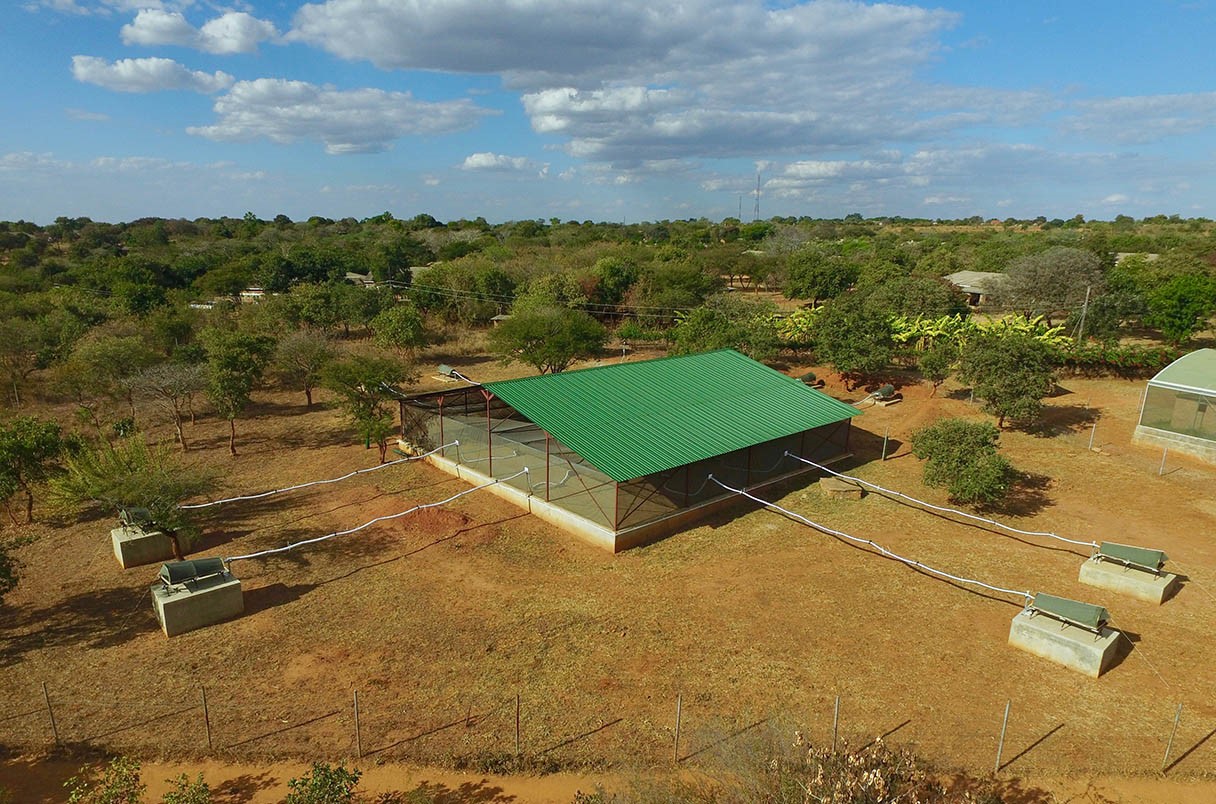Researchers Uncover the Specific Body Odors That Attract Mosquitoes
A field experiment conducted in Zambia reveals that mosquitoes rely on body odors and carbon dioxide to locate human hosts during sleep. The study demonstrates that mosquitoes display a preference for specific body scents over others. [1]

Figure 1. Mosquito preference observation (Image: Julien Adam)
Figure 1 shows Scientists observed mosquito preferences in this screened-in mosquito “arena” in Zambia. In a study published in Current Biology, a collaborative team of researchers from the United States and Zambia constructed a 20m square "flight cage arena" to investigate the significance of carbon dioxide and body odor in mosquito preference. Over multiple nights, they released 200 mosquitoes into the arena and monitored their behavior using infrared motion cameras. The experiment aimed to understand the factors that influence mosquito activity and host selection. [1]
“These mosquitoes typically hunt humans in the hours before and after midnight,” says author Conor McMeniman, an assistant professor at Johns Hopkins Bloomberg School of Public Health and Johns Hopkins Malaria Research Institute. [1]
“They follow scent trails and convective currents emanating from humans, and typically they’ll enter homes and bite between around 10pm and 2am. We wanted to assess mosquito olfactory preferences during the peak period of activity when they’re out and about and active and also assess the odour from sleeping humans during that same time window.” [1]
Evenly spaced, warmed ‘landing pads’ were stationed at the perimeter of the flight arena. [1]
In the initial experiment, landing pads were set up and baited with different substances, including carbon dioxide (CO2), body odor, and a control without any bait. The results showed that mosquitoes were not attracted to the heated landing pads unless they were also baited with carbon dioxide. Interestingly, human body odor proved to be a more enticing bait for mosquitoes compared to carbon dioxide alone. This finding highlights the significant role of body odor in attracting mosquitoes and suggests that it plays a crucial role in their host selection behavior. [1]
In the second experiment, the researchers conducted a study involving six individuals who slept in separate single-person tents positioned around the flight cage arena. This experiment spanned six consecutive nights. To simulate the release of body odor, each tent was equipped with screened aluminum ducting and low-speed fans, which transported the scent from the individuals inside the tents into the flight arena and onto the landing pads where the mosquitoes were present. By implementing this setup, the researchers aimed to investigate the response of mosquitoes to the actual body odor emitted by sleeping humans. [1]
In addition to observing the mosquitoes' preferences, the researchers also gathered air samples from the tents each night. These samples allowed them to analyze and compare the chemical components of each person's body odor. They examined a total of 40 different compounds present in the body odor samples. The findings indicated that certain body odors consistently attracted mosquitoes more than others. Specifically, mosquitoes exhibited a greater attraction to individuals whose body odors contained higher levels of carboxylic acids, which are likely produced by skin microbes. On the other hand, individuals with lower levels of carboxylic acids and higher levels of eucalyptol, potentially associated with their diet, were less appealing to mosquitoes. [1]
Eucalyptol – a chemical likely derived from plant-based foods and flavourings in a person’s diet – was highly abundant in the body odour of the least preferred human subject in the six-person cohort. [1]
The researchers were surprised by how effectively the mosquitoes could locate and choose between potential human meals within the huge arena. [1]
“When you see something moved from a tiny laboratory space where the odours are right there, and the mosquitoes are still finding them in this big open space out in a field in Zambia, it really drives home just how powerful these mosquitoes are as host seekers,” says analytical chemist Stephanie Rankin-Turner. [1]
In the study conducted on the African malaria mosquito, researchers aimed to gain a deeper understanding of the factors that influence human attractiveness to this disease-carrying vector. Previous research has revealed that mosquitoes employ various sensory cues to identify their targets, including visual cues, body heat, odor, carbon dioxide, and moisture. Each of these cues has a different range of effectiveness: warmth can be sensed within a range of up to 50cm, visual cues within 5-15m, and carbon dioxide and body odor potentially up to 60m. By investigating these sensory cues, the researchers aimed to shed light on the mechanisms underlying mosquito host-seeking behavior and their ability to locate human hosts over varying distances.
References:
- https://cosmosmagazine.com/health/scientists-discover-which-body-odours-mosquitoes-prefer/
Cite this article:
Hana M (2023), Researchers Uncover the Specific Body Odors That Attract Mosquitoes., AnaTechmaz, pp.435

